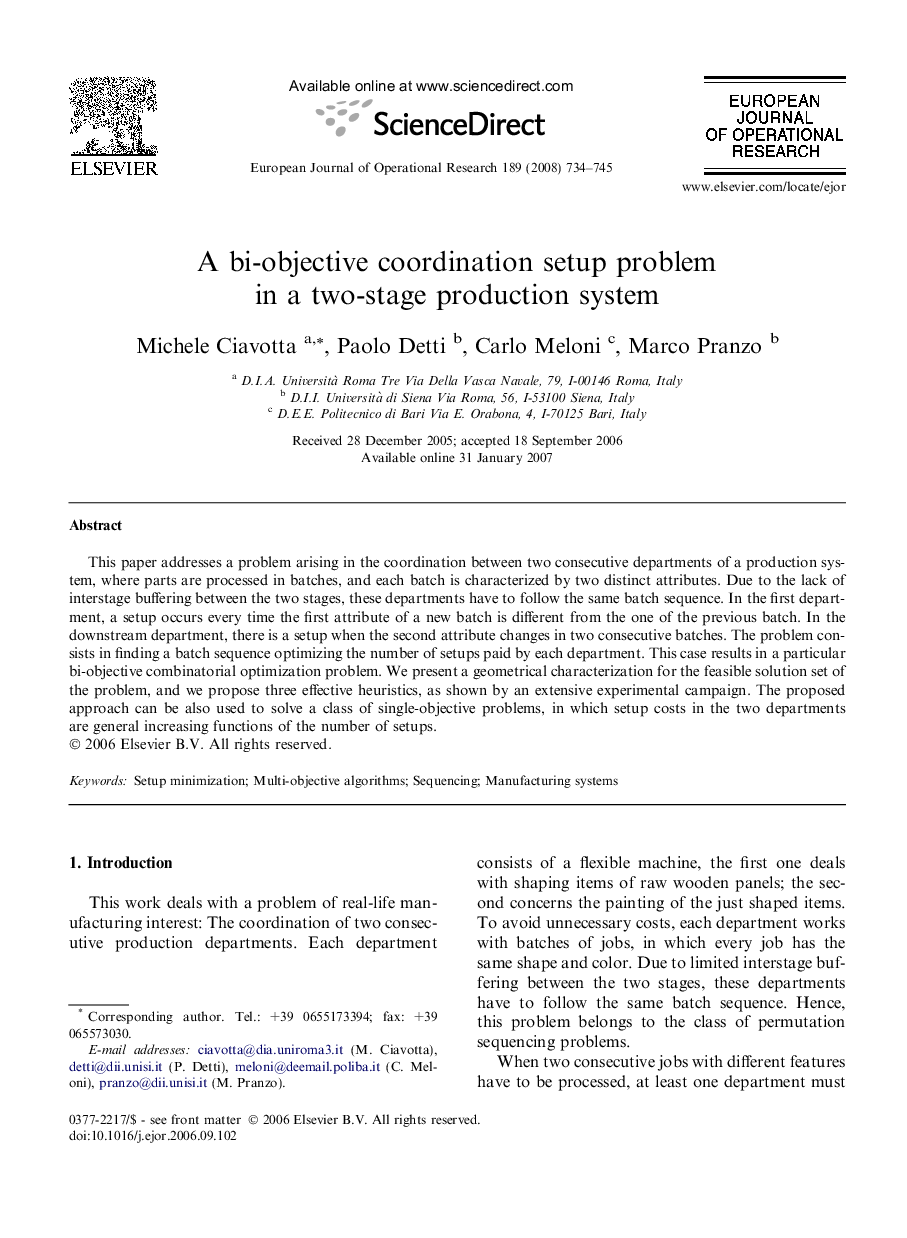| Article ID | Journal | Published Year | Pages | File Type |
|---|---|---|---|---|
| 481995 | European Journal of Operational Research | 2008 | 12 Pages |
This paper addresses a problem arising in the coordination between two consecutive departments of a production system, where parts are processed in batches, and each batch is characterized by two distinct attributes. Due to the lack of interstage buffering between the two stages, these departments have to follow the same batch sequence. In the first department, a setup occurs every time the first attribute of a new batch is different from the one of the previous batch. In the downstream department, there is a setup when the second attribute changes in two consecutive batches. The problem consists in finding a batch sequence optimizing the number of setups paid by each department. This case results in a particular bi-objective combinatorial optimization problem. We present a geometrical characterization for the feasible solution set of the problem, and we propose three effective heuristics, as shown by an extensive experimental campaign. The proposed approach can be also used to solve a class of single-objective problems, in which setup costs in the two departments are general increasing functions of the number of setups.
